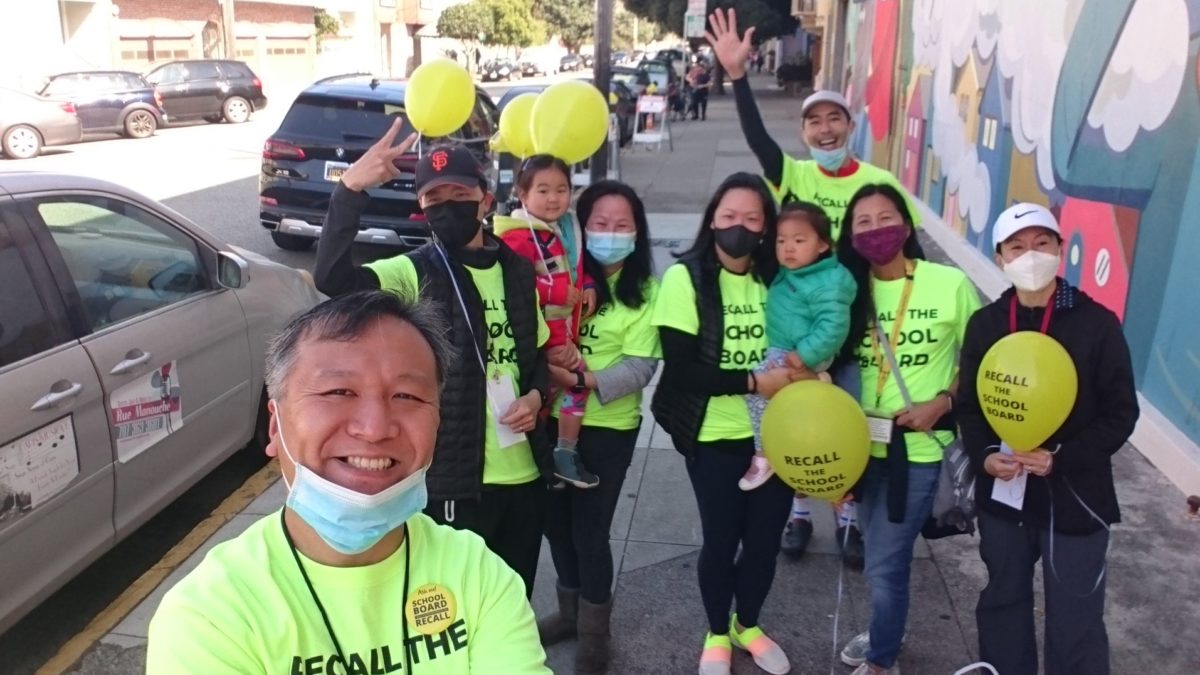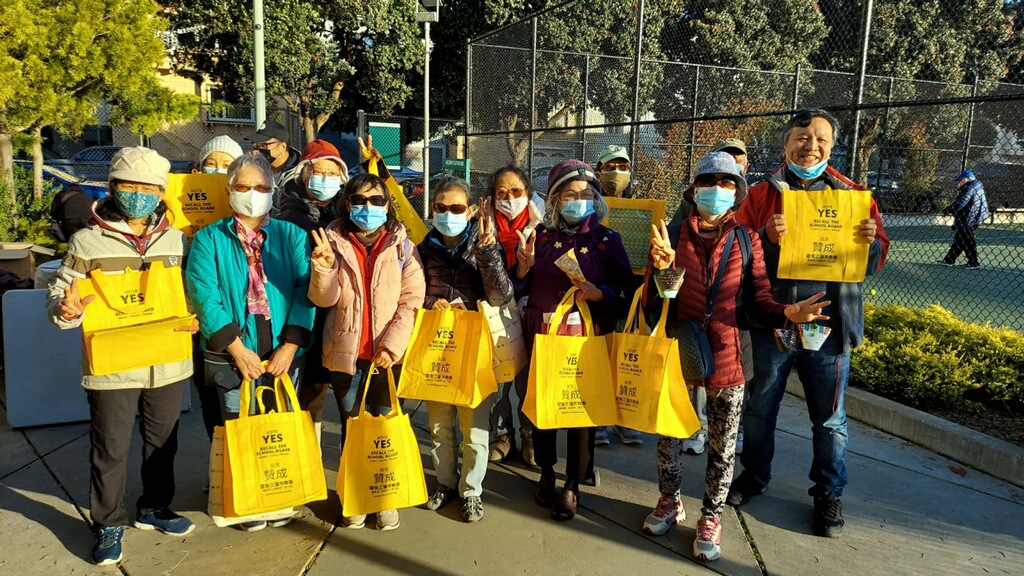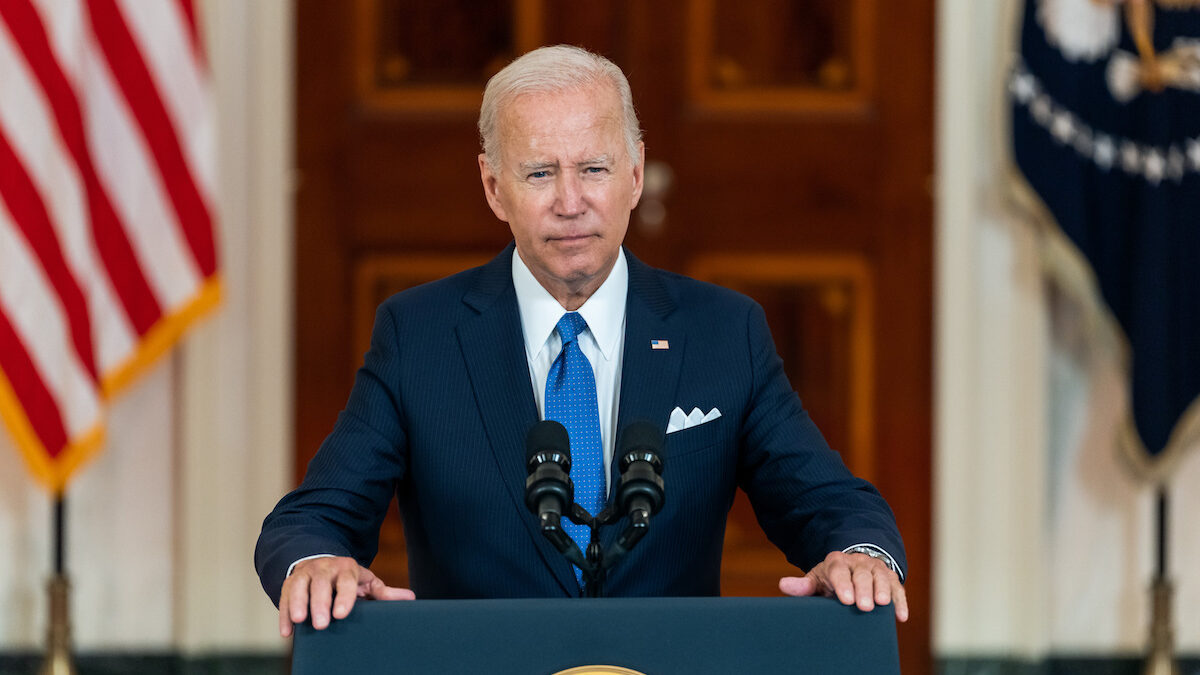
American families have been voicing their dissatisfaction with school boards, including prolonged school closures in the name of Covid-19 and the far-left ideological content their children have been taught over Zoom sessions. But few have been able to push back their school boards as successfully as residents in San Francisco.
On February 15, San Francisco’s majority-liberal residents will decide the fate of three far-left school board members who face recall. The outcome of this local election will have national implications, indicating how much Asian Americans, the fastest-growing racial and ethnic group in the nation, are shifting away from the Democrat Party.
The three San Francisco Unified School District (SFUSD) school board members facing recall are Board President Gabriela López and Commissioners Faauuga Moliga and Alison Collins. San Francisco families have three main grievances against them.
Those Three Main Grievances
Even the Democrat-led city government of San Francisco had enough with the board. It filed a lawsuit against both the SFUSD and its board in February 2021, accusing them of ” failing to come up with a reopening plan even as numerous other schools across the U.S. have reopened.” But SFUSD reopened only elementary schools last April and didn’t return to full-time in-person learning for all K-12 until fall 2021.
Board President López claimed the long delays didn’t cause any learning loss because children were “just having different learning experiences than the ones we currently measure,” and they learned more “about their families and cultures by staying home.” Her tone-deaf comments angered many parents, who have witnessed their kids’ academic and emotional struggles at home due to the school closures.
The school district has experienced such a sharp decline in student enrollment during its long closure that it had to implement a steep cut this school year to fill a budget hole of $125 million.
Social Justice at the Expense of Education
Second, the school board focused on leftist politics rather than education. In 2019, the board voted to cover a mural depicting slavery and Native Americans at George Washington High School, a decision that would cost taxpayers between $600,000 to $1 million. Fortunately, the mural will stay after a San Francisco Superior Court judge overturned the school board’s decision last year.
In January 2021, rather than focusing on reopening schools, the board voted to rename 44 schools, including Abraham Lincoln and George Washington High Schools. Even Democrat Mayor London Breed expressed her disbelief in a statement, saying, “I can’t understand why the school board is advancing a plan to rename all these schools when there isn’t a plan to have kids back in those physical schools.”
Breed backs the campaign to recall the three SFUSD board members. Facing nationwide backlash over the renaming controversy, the school board voted to reverse its school renaming plan in April.
In her recent campaign mailer to voters to defend her seat, SFUSD board member Collins identified the top three accomplishments of the board in the last few years, including “SFUSD becoming an Arts Equity District, reorganizing resources to ensure all 4h [sic] and 5th grade students received music instruction through the pandemic” and “Official reparations to the Native American / Native Alaskan communities, and for Board meetings to begin with acknowledgment that our district stands on unceded Ramaytush Ohlone land.”
None of Collins’s “accomplishments” is related to the school board’s primary responsibility to ensure all kids receive a quality education.
Open Racial Bias
Lastly, another top grievance of recall supporters is school board members’ anti-Asian bias. In the fall of 2020, the school board voted to eliminate the academic performance-based admission process to Lowell High school, one of the best high schools in the city.
It is important to note that Lowell’s admission process wasn’t 100 percent merit-based. Due to the San Francisco NAACP v. San Francisco Unified School District lawsuit and the 1983 Consent Decree settlement, there is a limit to the percentage of students from a particular ethnic group that can enroll at Lowell.
This cap means that, to get into Lowell, Chinese Americans have to score higher than any other ethnic group because Chinese American students represent a “disproportionate” share of students meeting the school’s requirements. Still, to justify canceling Lowell’s academic-based admission completely, board president Lopez claimed grades and test scores were “biased towards Whites and Asians,” even though non-white students make up 75 percent of Lowell’s student body. Collins tweeted that “‘merit’ is an inherently racist construct designed and centered on white supremacist framing.”
Shortly after, people uncovered some racially charged tweets by Collins from 2016, in which she blamed Asian-Americans for using “white supremacist thinking to assimilate and ‘get ahead.’” Several Asian-American voters told me that Collins’ racist tweets, her half-hearted apology, and her refusal to resign despite widespread criticism had motivated them to volunteer for the recall campaign.
Asian Americans Led The Recall Campaign
The three board members and their supporters claim the recall campaign was funded by right-wing big money. In truth, the recall campaign is a grassroots movement led by Asian Americans. Many of them are lifelong liberals, and some are first-generation immigrants who had never been politically active until last year. I interviewed two of them.

Kit Lam is an immigrant from Hong Kong and a father of two children in SFUSD. Lam has worked for the school district for 12 years as a fraud investigator. It broke Lam’s heart to see his son, a 10th grader, stop being outgoing and struggle academically and emotionally during the school closure.
Lam’s position at the school district also gave him a front-row seat to see how much other kids in the district have fallen behind. Lam decided to do something to “save these kids’ lives.”
Lam joined the recall campaign from the start, when there was no money and only volunteers like him. Lam went on numerous radio shows to explain the recall campaign to Asian voters. After his first radio interview, a Chinese immigrant donated $25 and signed up as a volunteer. From such a humble beginning, the recall campaign gradually built momentum.
To get the recall on the ballot, recall supporters had 160 days to collect signatures from 10 percent of registered voters in the city, or 51,325 per board member. The lockdowns made collecting signatures extra challenging. Still, with immigrants’ perseverance and work ethic, Lam and others collected more than enough signatures to get the recall on the ballot.
Allene Jue is another campaign volunteer, and a daughter of Chinese immigrants. In their early years in America, Jue’s dad worked as a cook and her mom had multiple jobs, including being a hotel housekeeper. From the time Jue was born till she was six, her family of four crammed into single-room occupancy (SRO) housing in Chinatown. A typical SRO room is so small that it” barely fits in a bed and a small table.” All occupants on the same floor shared a communal kitchen and bathroom.
Today, Jue is an executive at a fintech company. A graduate of Lowell, she learned from her own experience that a good education could open many doors and change an immigrant family’s fortune within one generation. She believes replacing Lowell’s academic-based admission with a lottery system would take away opportunities from qualified Asian students from low-income families like hers.
Never interested in anything political in the past, Jue has been busy getting signatures, stuffing envelopes, and delivering signs for the recall campaign. She said she would pay more attention to political issues from now on, even after the recall campaign was over.
Board Recall a Bellwether
There are important national implications if this grassroots campaign led by Asian Americans succeeds in ousting the three most leftist school board members in one of the farthest-left cities in America. It will signal that the Democrat Party’s policies have become so unpopular that even left voters can’t take it anymore.
A successful recall campaign will also give indications of how much Asian Americans, traditionally solid supporters of the Democrat Party, are shifting away from the party. Since Asian Americans are the fastest-growing racial and ethnic group in the nation, such a political shift will heavily influence America’s future.









